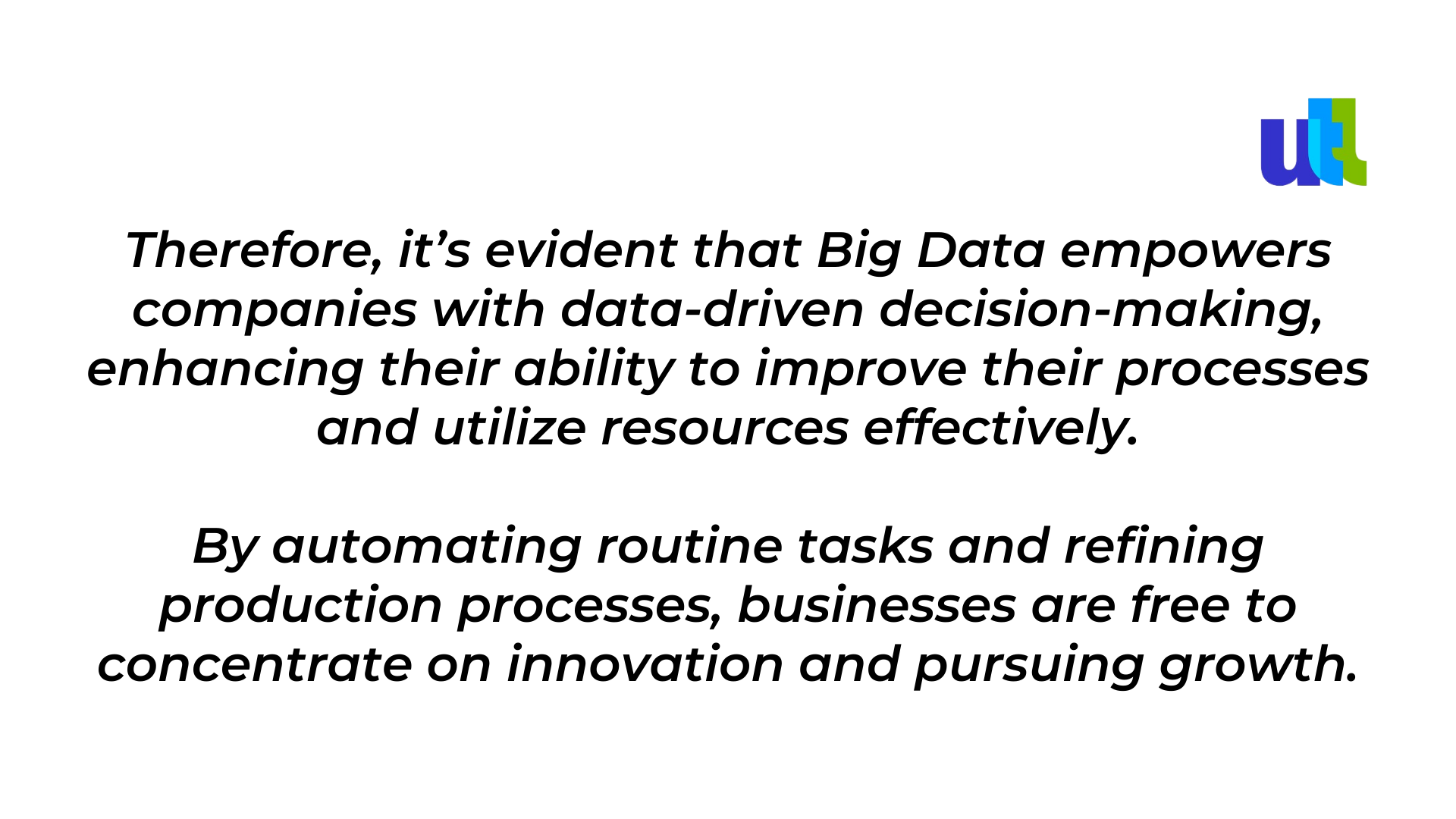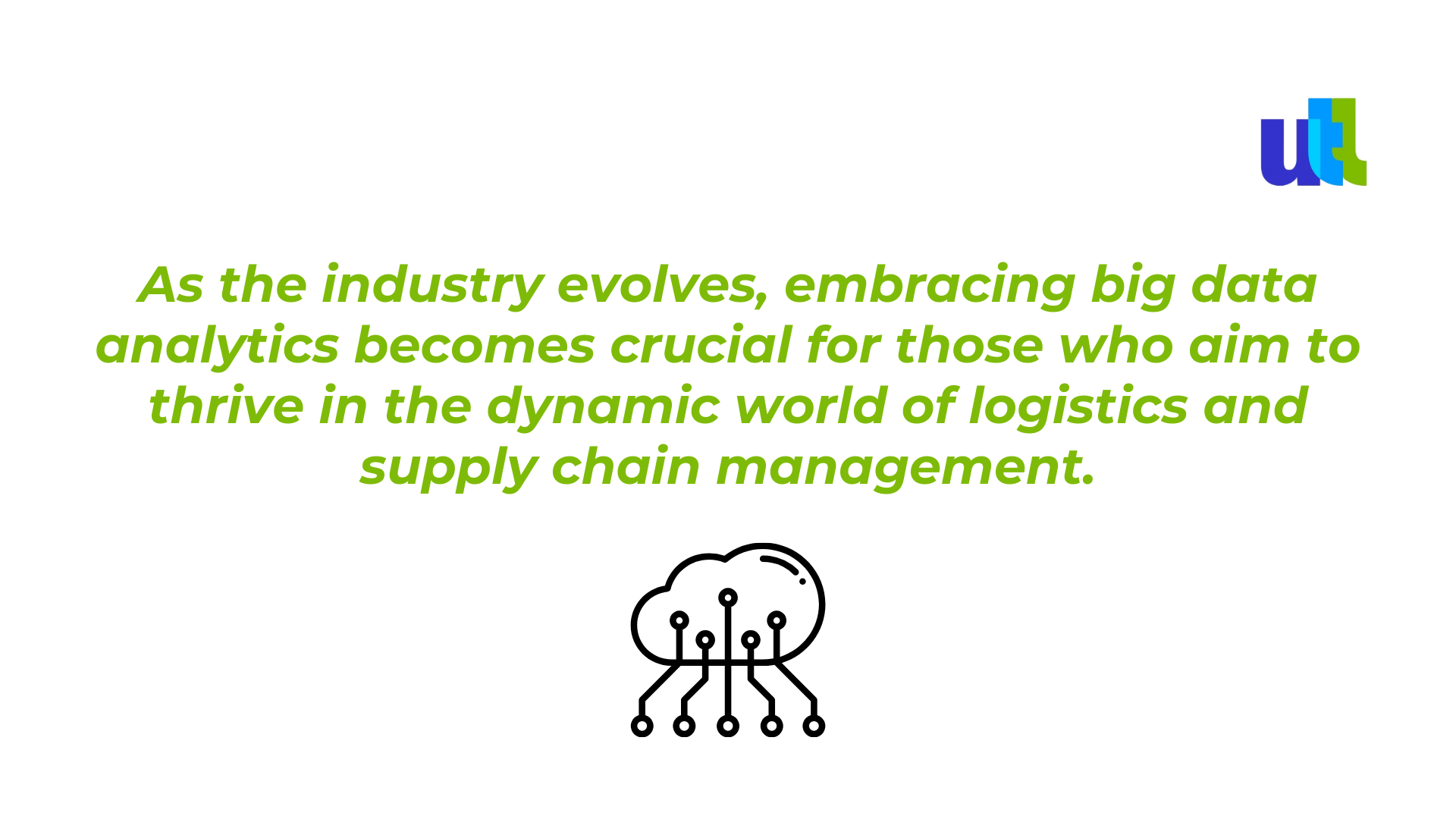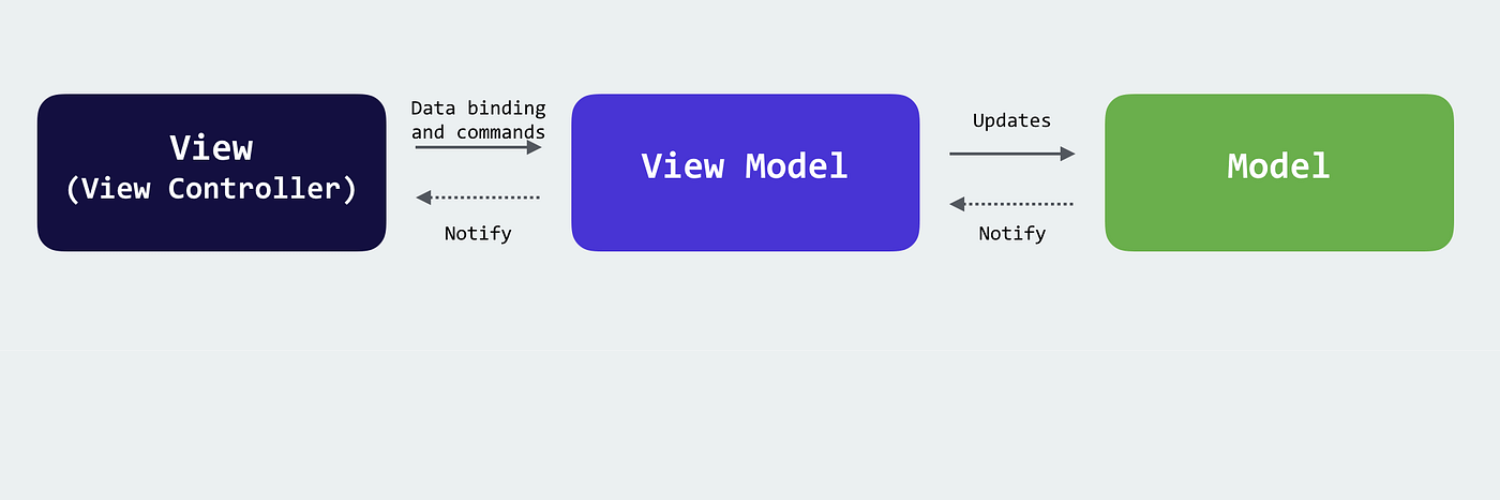In a world where data is as valuable as currency, Big Data analytics stands out as the essential tool for modern businesses. This technology is a transformative process that allows companies to filter through immense volumes of information to find the insights that matter. For supply chain management, this means making decisions that are not just informed, but intelligent and predictive.
With Big Data, businesses are no longer reacting; they're predicting, planning, and executing with precision. The impact on the supply chain is profound: reduced costs, improved efficiency, and the agility to adapt to market changes almost in real time.

This surge in value reflects the critical role that data plays in optimizing operations, enhancing customer experiences, and pioneering market research.
In this blog post, we'll explore how Big Data analytics is reshaping the supply chain landscape, providing a competitive edge that is a necessity for growth and sustainability.
Understanding big data analytics
Understanding Big Data Analytics simplifies when we focus on its three key characteristics: volume, velocity, and variety.
Volume encompasses the vast amounts of data generated from sources like social media and sensors. Advanced technologies such as distributed and cloud-based storage systems are essential for managing this data efficiently.
Velocity highlights the rapid rate at which data flows and the need for immediate processing. Technologies like streaming processing and in-memory databases are critical for harnessing this data swiftly to capitalize on emerging opportunities.
Variety involves the range of data types, from structured to unstructured. Sophisticated analytical methods, including Natural Language Processing, are necessary to interpret this data and extract valuable insights.
This approach allows business leaders to identify market trends, understand consumer behavior, and foresee industry shifts, thereby staying competitive.
Leveraging big data for streamlined operations and strategic growth
Big Data's influence on business operations is profound and versatile, significantly boosting operational efficiency and productivity. Big Data equips businesses with the ability to operate with exceptional precision. It provides deep insights by analyzing vast quantities of both structured and unstructured data, enabling real-time detection and resolution of operational bottlenecks.

Regarding supply chain management, Big Data provides a comprehensive overview from the acquisition of raw materials to the delivery of the final product. It allows businesses to analyze supplier performance, monitor inventory, assess transport logistics, and understand customer demand. This level of insight promotes agility, ensuring a consistent supply of goods and services, which in turn encourages customer satisfaction and loyalty.
When it comes to resource allocation and cost management, Big Data replaces speculation with precise, data-driven strategies. Advanced analytics shed light on spending patterns, pinpointing opportunities to reduce waste and enhance the Return on Investment.
Navigating the path to data mastery: Strategies and solutions
Embracing a data-centric approach comes with its set of challenges. Below are some strategies to effectively manage these complexities:
Strengthening data privacy and security:
The vast amounts of data carry the risk of breaches and unauthorized access. It is crucial to protect sensitive data through strong encryption, access controls, and adherence to regulatory standards to mitigate these risks.
Managing large data quantities:
The relentless increase in data volume requires robust and scalable infrastructures. Cloud computing and distributed storage systems provide adaptable options. Utilizing advanced integration methods and data lakes can simplify data management and enhance analysis readiness.
Ensuring data integrity:
The value of data lies in its quality. Establishing strong data governance, effective cleansing routines, and thorough validation protocols is essential. Leveraging automation and committing to data stewardship can significantly improve data trustworthiness.
Crucial role of big data in logistics
The logistics sector is inherently complex and relies heavily on the synchronization of numerous stakeholders and processes. Big data analytics offers solutions to navigate through this complexity by providing strategic insights and operational intelligence in key logistics functions:
Demand forecasting and strategic planning:
Big data's predictive ability is essential for anticipating market demand, leading to more efficient inventory control, cost reduction, and maintaining pace with consumer expectations. Analytical insights help logistics firms to plan effectively, ensuring the availability of the right products at the right time.
Route efficiency and optimization:
In logistics, optimizing routes is crucial for minimizing transit costs and delivery times, which in turn enhances customer satisfaction. Big data analytics enables companies to assess real-time traffic, weather conditions, and other variables to determine the most efficient delivery paths.
Warehouse operations enhancement:
The role of big data in warehouse management is indispensable for rapid order fulfillment and inventory control. Real-time insights into warehouse activities enable companies to optimize inventory levels, monitor stock movement, and maximize warehouse operations efficiency.
The future trajectory of big data analytics
The course of big data analytics in supply chain and logistics management is set to rise. Several drivers are powering this trend:
Growing Accessibility of Data:
The exponential increase in data generation from IoT devices and digital platforms provides businesses with valuable operational insights, paving the way for enhanced data-informed decision-making.
Technological Advancements:
Emerging technologies like AI, machine learning, IoT, and blockchain are evolving rapidly, offering innovative ways to process and analyze data. As these technologies become more prevalent, the integration of big data analytics in business operations is expected to expand.
Evolving Customer Expectations:
Modern consumers expect faster deliveries, real-time updates, and personalized service. Big data analytics enables companies to meet these demands by optimizing logistics and tailoring services to individual customer needs, making it essential for businesses to adopt these analytical techniques to enhance customer satisfaction.
From improving demand forecasts to route optimization and managing risks, big data analytics equips businesses to make informed decisions that drive success.

Case studies: Innovative big data in supply chain optimization
Amazon
The retail giant Amazon has harnessed the power of big data analytics to transform its supply chain devices. Through cutting-edge analytics, Amazon has enhanced its inventory management and order fulfillment processes, providing customers with updates in real time. The use of predictive analytics, based on detailed customer data, allows Amazon to predict demand patterns, refine delivery logistics, and tailor customer recommendations, showcasing the significant impact of big data on supply chain effectiveness.
Walmart
Walmart, the international retail leader, employs big data analytics to streamline its supply chain processes. By utilizing the Retail Link system, Walmart captures and examines a vast array of data on customer purchases, vendor performance, and stock levels. The insights gained from such big data are instrumental in Walmart's strategy to fine-tune inventory control, minimize out-of-stock scenarios, and heighten the agility of its supply chain.
Procter & Gamble
Procter & Gamble (P&G), a multinational consumer goods corporation, utilizes big data analytics as a cornerstone of its supply chain strategy. P&G draws from diverse data streams, including sales data, social media feedback, and extensive market analysis, to decode consumer trends and demand shifts. These insights allow P&G to refine its manufacturing strategies, reduce instances of stock shortages, and successfully introduce new offerings. By leveraging big data, P&G propels innovation and operational excellence within its supply chain.
Summary
In conclusion, the integration of Big Data analytics into supply chain management has become a non-negotiable element for businesses aiming for efficiency and competitive advantage. This technology has shifted the corporate paradigm from reactive to predictive, empowering businesses like Amazon, Walmart, and Procter & Gamble to refine operations and customer engagement.
With UtahTechLabs, your enterprise can optimize inventory, manage risks effectively, and enhance overall supply chain responsiveness. Our commitment to innovation means providing you with the cutting-edge technology needed to navigate today's fast-paced market dynamics.
Choose UtahTechLabs for a partnership that translates data into growth, setting your business on a persistent course for success in the digital landscape.
For free consultation on big data for supply chain, click here.
----------------------------------------------------------------------------------------------
View the full presentation:
WRITTEN BY
Milda Butkeviciute
2023-12-13














































































































































































